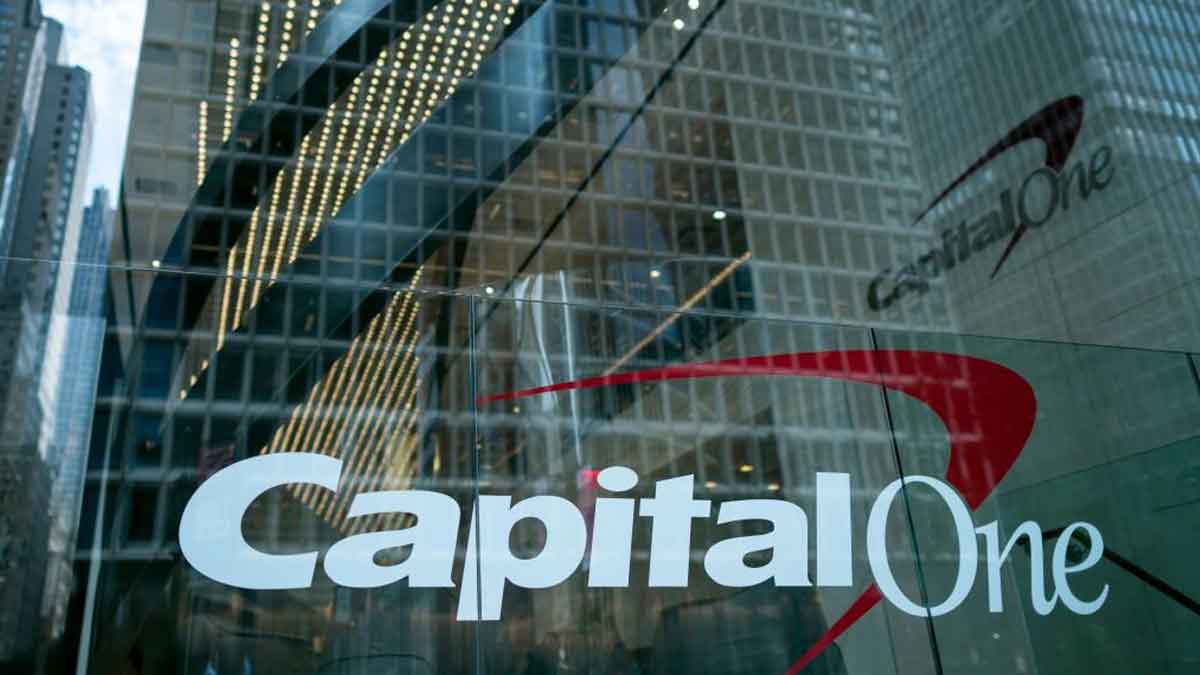- Home
- Billionaires
- Investing Newsletters
- 193CC 1000
- Article Layout 2
- Article Layout 3
- Article Layout 4
- Article Layout 5
- Article Layout 6
- Article Layout 7
- Article Layout 8
- Article Layout 9
- Article Layout 10
- Article Layout 11
- Article Layout 12
- Article Layout 13
- Article Layout 14
- Article Sidebar
- Post Format
- pages
- Archive Layouts
- Post Gallery
- Post Video Background
- Post Review
- Sponsored Post
- Leadership
- Business
- Money
- Small Business
- Innovation
- Shop
Recent Posts
Capital One Considers Buying Discover in Credit Card Merger

Capital One is reportedly considering acquiring Discover Financial, a move that could lead to the creation of the largest U.S. credit card firm by loan volume. Multiple outlets have indicated that Capital One is exploring this acquisition, with The Wall Street Journal suggesting that an announcement could come as early as Tuesday. The deal, if finalized, would mark a significant milestone for both companies and the financial sector as a whole.
According to reports, Capital One intends to pursue an all-stock deal to acquire Discover, although specific financial terms have not yet been disclosed. This potential merger highlights the strategic alignment between the two entities, as Capital One is a prominent bank that issues credit cards, primarily affiliated with Visa and Mastercard, while Discover Financial not only issues cards but also operates its own payment network, competing with major players like Visa in facilitating credit card transactions.
For Capital One, the acquisition of Discover would represent its largest-ever deal, underscoring the scale and ambition of the Virginia-based bank. The proposed merger has generated significant interest among industry observers, with many noting the potential implications for the competitive landscape of the credit card market.
The combined entity would wield substantial influence and market share, with Capital One’s reported worth of around $52.2 billion and Discover Financial’s valuation at approximately $27.6 billion. This consolidation could reshape the dynamics of the banking sector, positioning the merged company as a formidable player in the financial services industry.
Notably, the reported acquisition could mark one of the largest deals in the banking sector since 2009, when Bank of America acquired Merrill Lynch for $50 billion amid a wave of mergers following the global financial crisis. If completed, this transaction would rank among the most significant global acquisitions of 2024, signaling a notable shift in the landscape of corporate consolidation.
Understanding the context of both Capital One and Discover is crucial in assessing the potential impact of the merger. Capital One currently ranks as the ninth-largest bank in the U.S., boasting $475 billion in assets and a nationwide network of approximately 280 branches. In contrast, Discover Financial operates as a leading credit card issuer with its own payment network, complementing Capital One’s existing offerings.
Both companies cater to customers who may be deemed high-risk by traditional lenders, a factor that could influence the strategic rationale behind the proposed merger. Additionally, regulatory scrutiny and compliance considerations may play a significant role in shaping the trajectory of the deal, particularly in light of recent regulatory actions affecting Discover.
From a financial standpoint, Capital One’s recent performance highlights its resilience and adaptability in a dynamic market environment. Despite reporting a 43% drop in profit, attributed in part to provisions for potential defaults amid rising interest rates, the bank’s net revenue increased by 1% in the fourth quarter, signaling underlying strength and stability.
Similarly, Discover Financial reported a 13% increase in revenue for the same period, albeit with a significant decline in profit due to rising operating costs. These contrasting financial metrics underscore the complex dynamics driving the potential merger and the strategic imperatives guiding both companies in pursuing consolidation.
In summary, the reported acquisition of Discover Financial by Capital One represents a significant development in the financial services industry. If realized, the merger would create a dominant player in the credit card market, with far-reaching implications for consumers, competitors, and regulatory stakeholders alike. As the deal progresses, close attention will be paid to the evolving narrative surrounding this transformative transaction.
Recent Posts
Categories
- 193cc Digital Assets2
- 5G1
- Aerospace & Defense46
- AI37
- Arts3
- Banking & Insurance11
- Big Data3
- Billionaires426
- Boats & Planes1
- Business328
- Careers13
- Cars & Bikes76
- CEO Network1
- CFO Network17
- CHRO Network1
- CIO Network1
- Cloud10
- CMO Network18
- Commercial Real Estate7
- Consultant1
- Consumer Tech180
- CxO1
- Cybersecurity68
- Dining1
- Diversity, Equity & Inclusion4
- Education7
- Energy8
- Enterprise Tech29
- Events11
- Fintech1
- Food & Drink2
- Franchises1
- Freelance1
- Future Of Work2
- Games141
- GIG1
- Healthcare78
- Hollywood & Entertainment186
- Houses1
- Innovation42
- Investing2
- Investing Newsletters4
- Leadership65
- Lifestyle11
- Manufacturing1
- Markets20
- Media193
- Mobile phone1
- Money13
- Personal Finance2
- Policy567
- Real Estate1
- Research6
- Retail1
- Retirement1
- Small Business1
- SportsMoney33
- Style & Beauty1
- Success Income1
- Taxes2
- Travel10
- Uncategorized8
- Vices1
- Watches & Jewelry2
- world's billionaires395
Related Articles
513K Get Student Loan Forgiveness Due To Health
In a sweeping initiative aimed at providing relief to borrowers facing medical...
By 193cc Agency CouncilFebruary 13, 2024












Leave a comment